How I Learned To Stop Worrying and Love Global Warming

Greetings friends!
Perhaps like you, I’ve been worried about climate change for a while. My instincts were screaming at me that the path the world is on is unsustainable.
- From my economics training to years spent working in sustainability, all signs pointed to rough times ahead.
- Not to mention the lessons of human psychology and how individuals and societies respond to incentives: “You mean we can consume the world’s resources now and someone else will have to deal with the consequences?”
Today I’ll share how I learned to stop worrying and love global warming.
Consider how much good has come from abundant, cheap energy
We live in times of unprecedented prosperity, particularly those of us living in Europe and North America.
World GDP was flat for most of human history until exploding in the late 19th century.
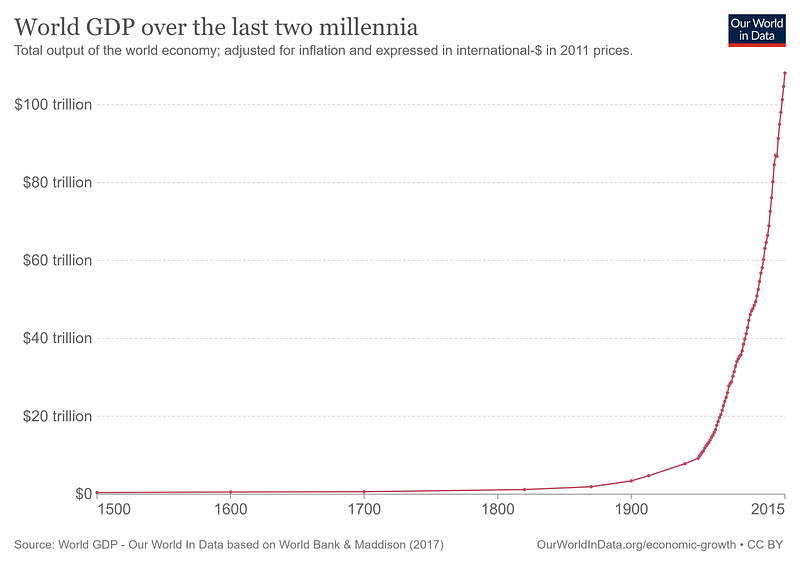
What drove this explosive growth? There were several factors, but take a look at how growth in GDP correlates to the world’s consumption of energy. Almost all the additional energy consumption has come from oil, coal, and natural gas.
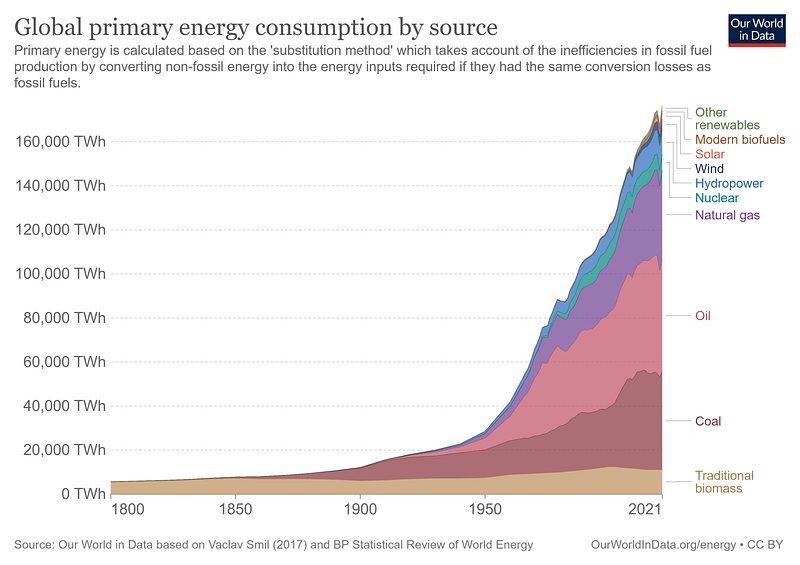
It’s no accident that as energy consumption increased, prosperity increased.
Put another way, the poorer a country, the less energy its citizens consume. If you want a proxy for prosperity, you could find few better measures than energy consumption.
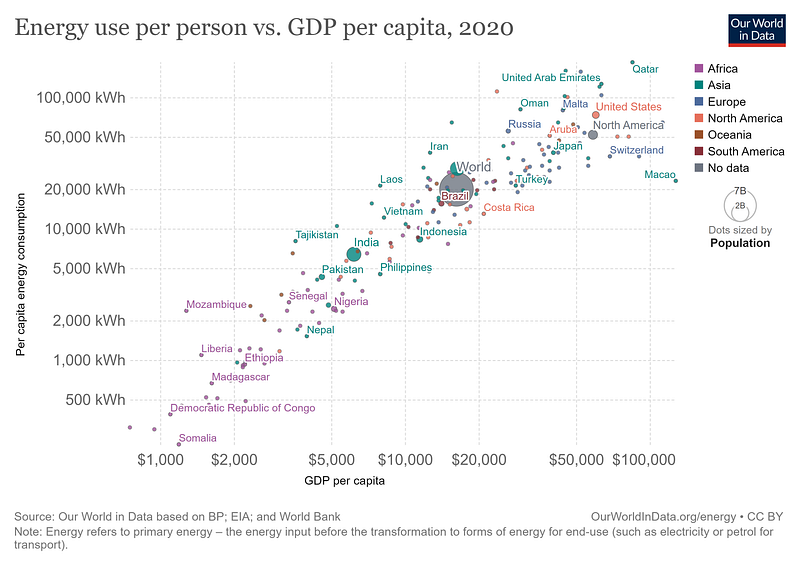
No matter what comes next, all of us in wealthy countries must acknowledge that we’ve been benefitting from boom times for many years.
Most of the world’s population doesn’t share our energy abundance
Alas, people in many countries do not have access to abundant, inexpensive energy. But they still want to cook food and heat their homes.
Poorer people do so using relatively polluting and unhealthy biomass alternatives, like dung, wood, charcoal, and coal.
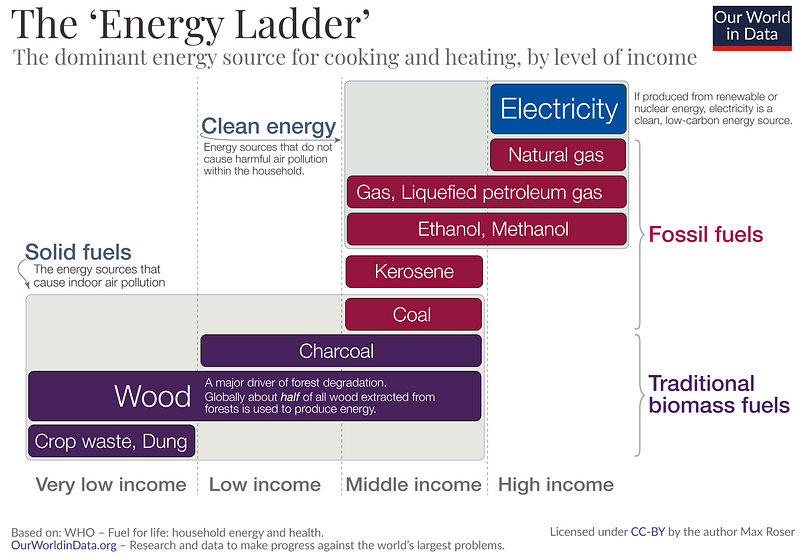
Are the consequences of warming really so terrible?
You will hear breathless reports that the continued warming of the planet will have catastrophic consequences. Is that really the case?
First off, history suggests that doomsday predictions are to be taken skeptically.
And even if we accept the climate alarmists’ premise, it may not yield only bad outcomes. What is that, you wonder? There are good arguments that
- Higher CO2 levels are good for humanity
- A warming planet is good for humanity
Let’s consider why that might be the case.
The earth is greening
Thanks to increased levels of CO2 and, to a lesser extent, warmer average temperatures, a significantly greater portion of the earth is arable.
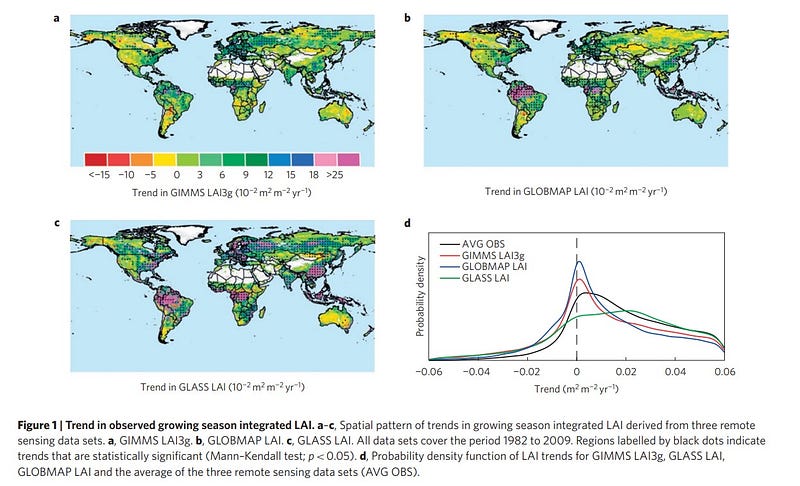
The earth is greening. This means we can more easily continue to feed our growing population.
Humans are more at risk from cold than heat
As Bjorn Lomborg puts it in The heresy of heat and cold deaths,
“Cold deaths vastly outweigh heat deaths…. Each year, almost 600,000 people die globally from heat but 4.5 million from cold.”
In addition, the impact of increasing temperatures is to reduce cold death by more than twice as much as heat deaths increase.
Simply put, a warming planet causes fewer humans to die.
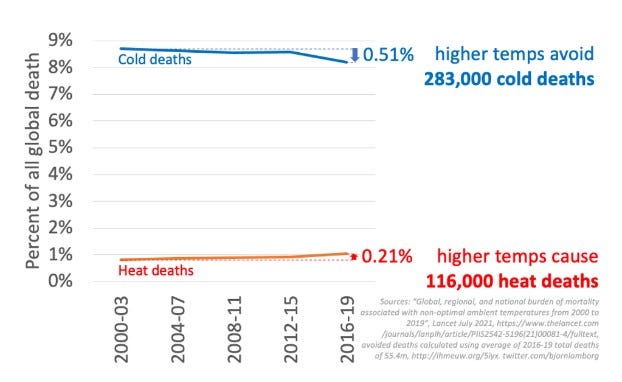
Viewed correctly, we have an economic problem, not an ecological one
When a country’s GDP per capita is below a certain level, its citizens are concerned with survival. They will burn dung and wood and care little for the environment.
At middle-income levels, countries focus on increasing standards of living, which as we saw above are closely correlated with access to affordable energy.
People in developing countries will not stop trying to develop. We should not stop them, and not just for moral reasons. As countries get wealthier, they switch to alternative sources of fuel and create less environmental harm.
When people have abundant access to affordable energy, their GDP rises and they have the means to deal with any unwanted consequences of a warming planet.
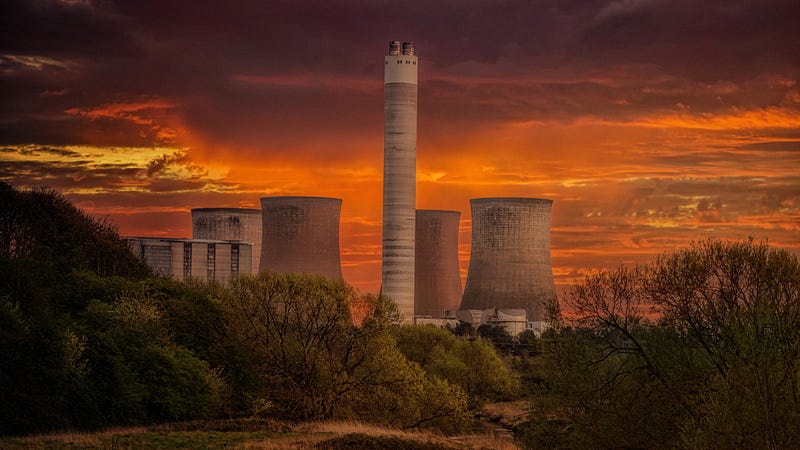
What’s the best course of action?
Taking all this into account, the path forward is clear. We should focus on raising GDP per capita of a majority of the world’s population to at least middle-income levels by ensuring access to abundant, cheap energy.
This may cause an increase in CO2 emissions and a further modest increase in global temperatures. And that’s exactly what we should wish for.
Be well.
PS — Readers may recognize my title is an homage to the movie Dr. Strangelove. Unlike the warmongers depicted there, you don’t need to be nuts to start loving global warming.






Member discussion